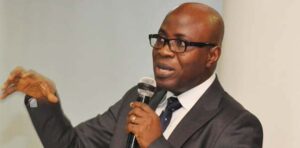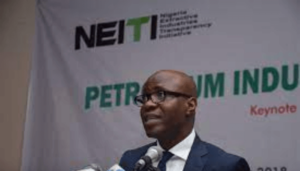An Abuja-based policy think tank, Agora Policy, has prescribed deft economic management, strong political will, effective communication, and trust-building as solutions to Nigeria’s economic woes.
The Abuja-based policy think tank, Agora Policy, on Monday, urged the Federal Government to undertake swift and audacious reforms to stop the rapid decline of the economy and its negative impact on the citizens.

The above was stated in a report titled, ‘Options for Revamping Nigeria’s Economy, the think tank prescribed solutions to the country’s economic woes and advocated the need for necessary efficient economic drivers.
The report maintains that despite posting positive GDP growth in six consecutive quarters and having the biggest GDP in Africa, Nigeria’s economy is not in sound health.
“Many of the macro-economic fundamentals have worsened and the level of inclusive development is low,” the report which analysed Nigeria’s economic datasets from 2011 to 2021 states.
“Nigeria needs to undertake swift, bold, and far-reaching reforms to halt the precipitous decline and the attendant negative impacts on citizens’ welfare. These reforms must be undergirded by inclusion, transparency, and accountability.”
According to the report, Nigeria’s economy is in desperate need of quick and bold actions to get out of the rut of low and fragile growth, lean and narrow revenue and export base, soaring debts and deficits, limited trade and investment, suboptimal government spending, and growing inflation, unemployment, and poverty.

Nigeria, the report further states, needs “to deepen and diversify sources of revenue, re-calibrate expenditure to spend smartly, and invest efficiently. To achieve this, a re-thinking of drivers of the economy is needed.”
“Some of the prescribed actions—which will require not just deft economic management but also strong political will, effective communication, and trust building—include removing the progressively ruinous petrol subsidies, increasing tax revenue, curbing the growing and suffocating appetite for debts, ending restrictive trade practices, and adopting a more realistic and more transparent exchange rate regime”, it states.
The report identifies the domestic and external drivers of the key challenges confronting Nigeria’s economy and provided options for reforms, especially in terms of government revenue, debt, trade and investment, inflation, interest and exchange rates, and unemployment and poverty.
Commenting on the report, the Founder/Executive Director of Agora Policy, Waziri Adio, said the decision to focus on the economy was driven by the need to expand policy and programmatic options for the current and next administrations.
“Everything revolves around the economy and there is no better time than the electioneering period to do a health check on the economy and come up with ideas and prescriptions for better economic outcomes.
“We commissioned this report to elevate the discussions during this important campaign season and to facilitate the search for solutions in an area that is central to national growth and human development,” Adio said.
Data points from the report show that Nigeria has not only underperformed its peers but also regressed on most socio-economic indicators between 2011 and 2021.
Nigeria, the report further states, needs “to deepen and diversify sources of revenue, re-calibrate expenditure to spend smartly, and invest efficiently. To achieve this, a re-thinking of drivers of the economy is needed.”
“Some of the prescribed actions—which will require not just deft economic management but also strong political will, effective communication, and trust building—include removing the progressively ruinous petrol subsidies, increasing tax revenue, curbing the growing and suffocating appetite for debts, ending restrictive trade practices, and adopting a more realistic and more transparent exchange rate regime”, it states.
The report identifies the domestic and external drivers of the key challenges confronting Nigeria’s economy and provided options for reforms, especially in terms of government revenue, debt, trade and investment, inflation, interest and exchange rates, and unemployment and poverty.
Commenting on the report, the Founder/Executive Director of Agora Policy, Waziri Adio, said the decision to focus on the economy was driven by the need to expand policy and programmatic options for the current and next administrations.
“Everything revolves around the economy and there is no better time than the electioneering period to do a health check on the economy and come up with ideas and prescriptions for better economic outcomes.
“We commissioned this report to elevate the discussions during this important campaign season and to facilitate the search for solutions in an area that is central to national growth and human development,” Adio said.
Data points from the report show that Nigeria has not only underperformed its peers but also regressed on most socio-economic indicators between 2011 and 2021.

